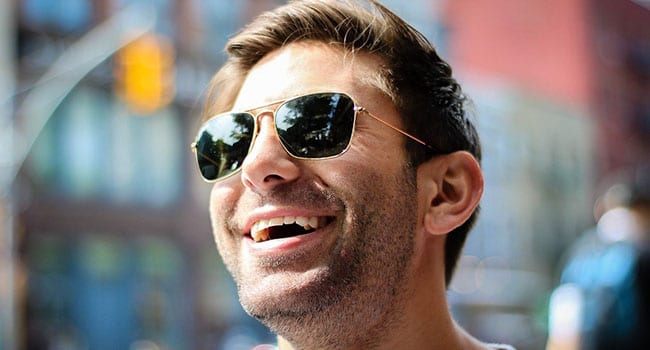 A song popularized by Monty Python tells us to “Always look on the bright side of life.” But is this always the best advice?
A song popularized by Monty Python tells us to “Always look on the bright side of life.” But is this always the best advice?
A study published by the Association for Psychological Science says this strategy only helps bring happiness if we’re dealing with a situation we have no control over.
In situations we do control, we’re much better off looking at the situation as an opportunity for learning and self-improvement.
It goes back to the serenity prayer, popularized by Alcoholics Anonymous and other 12-step recovery programs:
“God grant me the serenity to accept the things I cannot change, courage to change the things I can, and the wisdom to know the difference.”
The challenge comes in knowing the difference. What can we change?
Stephen Covey, in The 7 Habits if Highly Effective People, discusses the “circle of control” surrounded by the “circle of no control.” There are many things in life we have no control over. We don’t control the weather. We don’t control our ethnicity. We don’t control the past. We may be able to influence the decisions of other people but we don’t control them.
Even though we don’t control everything that happens to us, Covey points out that we do control how we respond.
- It’s raining out. I can’t mow the lawn but I can get things done inside the house. Awesome!
- I’m a Canadian of Arabic descent. This gives me a unique perspective on global issues. I can share my opinions.
- I made a decision that’s created problems. This was a valuable lesson as I move forward.
- I was well qualified and I did my best to get that job, but I wasn’t chosen. I need to keep trying and improving. Experience has shown me that there is something better on the horizon.
There’s much in life we do have direct control over. We control whether we’re going to form healthy or unhealthy habits. We control how much effort we’re going to put into any project. We control how we use our free time.
Of course, the ultimate freedom is that which allows us to choose our own thoughts. It’s vital that we be aware of and embrace this sacred aspect of our humanity.
There’s great wisdom in Covey’s teaching. The Association for Psychological Science study found that “looking on the bright side of life” can actually make things worse when we use it as an excuse.
- I ate and drank too much but, hey, it was a party!
- Yes, I know that was a mean thing to say, but I’m under a lot of pressure right now.
The challenge is to develop the wisdom to know the difference. This can only come through self-reflection, by asking ourselves difficult questions. It’s not a matter of blaming ourselves for our problems, but of recognizing our giftedness and the responsibility that this entails.
Of course, we all need help in becoming our best. Meditation has long been used to help improve our awareness and now its being rediscovered by many. Counselling helps others, as does journalling and mentoring. Effective businesses, parents and educational programs know the importance of making such resources available to their people, but ultimately their effectiveness is up to each individual.
Maybe “looking on the bright side of life” isn’t such bad advice – as long as we realize that “the bright side” is the one that embraces our goodness and offers us the greatest opportunity for achieving our potential.
Troy Media columnist Gerry Chidiac is an award-winning high school teacher specializing in languages, genocide studies and work with at-risk students.
The views, opinions and positions expressed by columnists and contributors are the author’s alone. They do not inherently or expressly reflect the views, opinions and/or positions of our publication.

